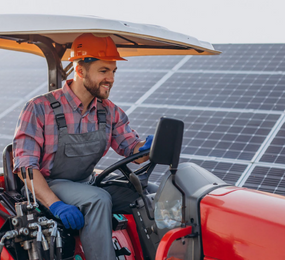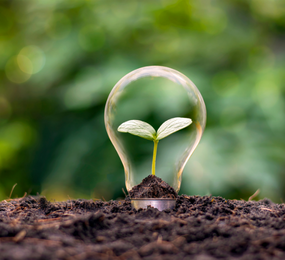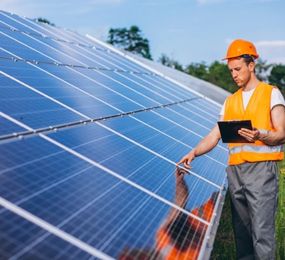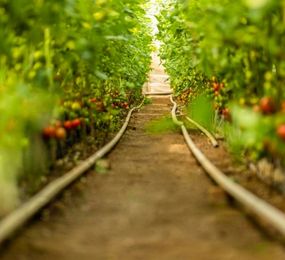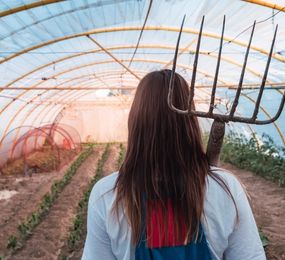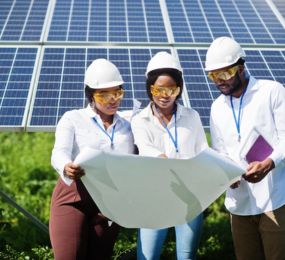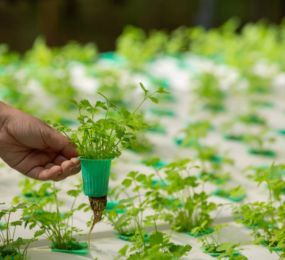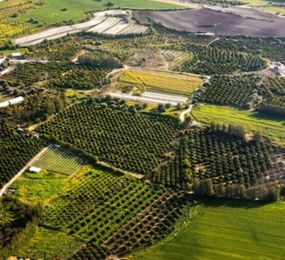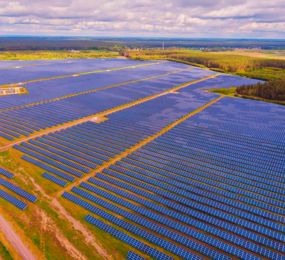As the world faces the pressing challenges of climate change and sustainable development, innovative approaches that address the needs of both energy and agriculture are crucial. Agrivoltaics, the integration of solar panels with agricultural practices, is emerging as a powerful solution. At the upcoming 2nd Annual AgriVoltaics Europe conference, our distinguished speakers will be presenting on the topic of "Agrivoltaics: Sustainability and Climate Resilience," shedding light on the immense potential of this transformative approach.
Sustainability in Agriculture
Agriculture, a vital sector for global food security, faces the dual challenge of increasing production to meet growing demands while minimising its environmental impact. Agrivoltaics offers a unique opportunity to advance sustainability in agriculture. By combining renewable energy generation with farming practices, Agrivoltaics promotes resource efficiency, reduces greenhouse gas emissions, and enhances the overall ecological footprint of agricultural systems.
Mitigating Climate Change
Climate change poses significant threats to agricultural productivity and food security. Rising temperatures, changing precipitation patterns, and extreme weather events disrupt growing seasons and increase the vulnerability of crops. Agrivoltaics plays a crucial role in climate change mitigation by reducing dependence on fossil fuels for energy generation. Solar panels generate clean and renewable energy, mitigating greenhouse gas emissions and contributing to global efforts to combat climate change.
Enhancing Climate Resilience
In addition to mitigating climate change, Agrivoltaics strengthens the resilience of agricultural systems. The shading provided by solar panels moderates temperature extremes, protecting crops from heat stress and minimising water loss through evapotranspiration. This shading effect not only reduces crop water requirements but also provides a favourable microclimate for plant growth, enhancing the overall resilience of agricultural production in the face of climate uncertainties.
Water Conservation
Water scarcity is a significant concern in many regions globally. Agrivoltaics offers a promising solution by reducing water consumption in agricultural systems. The shade provided by solar panels reduces evaporation rates, helping to conserve water resources. This is particularly important in arid and semi-arid regions where water availability is limited. By optimising water use, Agrivoltaics contributes to sustainable water management and ensures the long-term viability of agricultural practices.
Promoting Biodiversity and Ecosystem Services
Agrivoltaics presents opportunities for promoting biodiversity and enhancing ecosystem services within agricultural landscapes. The integration of solar panels creates new habitats for flora and fauna, supporting biodiversity conservation efforts. Furthermore, the combined benefits of renewable energy generation and sustainable agricultural practices foster ecosystem resilience, including improved soil health, enhanced nutrient cycling, and reduced reliance on synthetic inputs.
Join us on 8th - 9th November 2023 at the Steigenberger Airport Hotel in Amsterdam, Netherlands, for a dynamic and enlightening conference. Together, let us embrace Agrivoltaics as a catalyst for sustainable development, climate resilience, and a more secure and sustainable future for agriculture and the planet.
Be part of the conversation at the 2nd Annual AgriVoltaics Europe conference, where experts, researchers, policymakers, and industry leaders will unite to explore the exciting possibilities of Agrivoltaics. Together, we can shape a more sustainable, climate-resilient, and prosperous future for agriculture and our planet.
To register or learn more about the Forum please check here:http://bit.ly/3kR0v2R.
For more information and group participation, contact us: [email protected]


